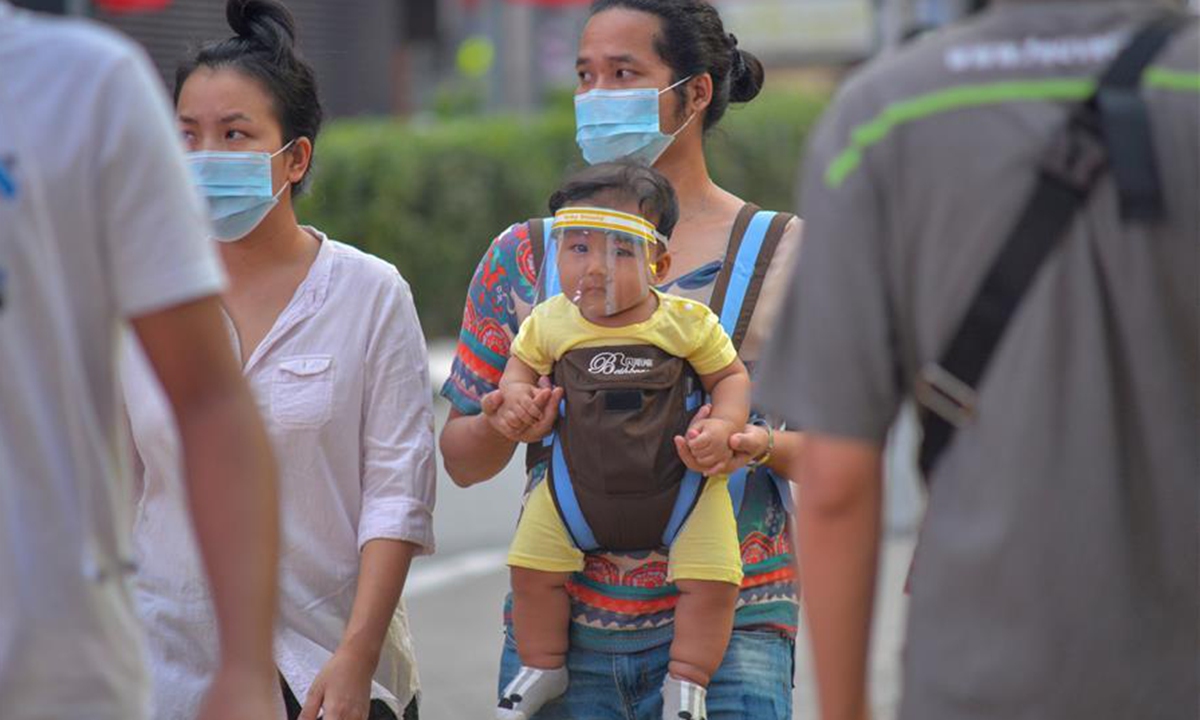Malaysia reintroduces movement restrictions as COVID-19 cases spike
Source: Xinhua Published: 2020/10/13 0:47:36

People walk on a street in Kuala Lumpur, Malaysia, Oct. 12, 2020. Malaysia on Monday announced the reintroduction of movement restriction measures in several areas including the capital city of Kuala Lumpur in a bid to contain the recent spike of COVID-19 cases. (Photo by Chong Voon Chung/Xinhua)
Malaysia on Monday announced the reintroduction of movement restriction measures in several areas including the capital city of Kuala Lumpur in a bid to contain the recent spike of COVID-19 cases.
Defense Minister Ismail Sabri Yaakob, who coordinated the implementation of COVID-19 restrictions, announced that the measures will be in force in Kuala Lumpur, the administration center of Putrajaya as well as the adjacent Selangor state from Oct. 14 to 27, in response to the spike in daily new COVID-19 cases, with the measures aimed at breaking the chain of infections.
During the period, inter-district travel is not allowed apart from work purpose. Schools, daycare centers, public parks, recreational centers and places of worship will be closed, while sports and social activities will not be allowed.
However, economic activities in the affected areas will not be halted, with standard operating procedures (SOP) and guidelines implemented for the safety of workers.
More restrictive measures will be in place in the country's eastern Sabah state from Oct. 13-26, he said.
Meanwhile, Health Ministry Director-General Noor Hisham Abdullah said in a separate press briefing Monday that 562 new cases have been detected, bringing the national total to 16,220. Of the new cases, one is imported.
Two more deaths have been reported, bringing the death toll to 159.
The majority of new cases are from Sabah, with 291 of the new cases reported in the state.
Another 109 patients have been released after recovery, bringing the total cured and discharged to 11,022, or 67.9 percent of all cases.
Of the remaining 5,039 active cases, 98 are being held in intensive care and 29 of those are in need of assisted breathing.
Posted in: ASIA-PACIFIC